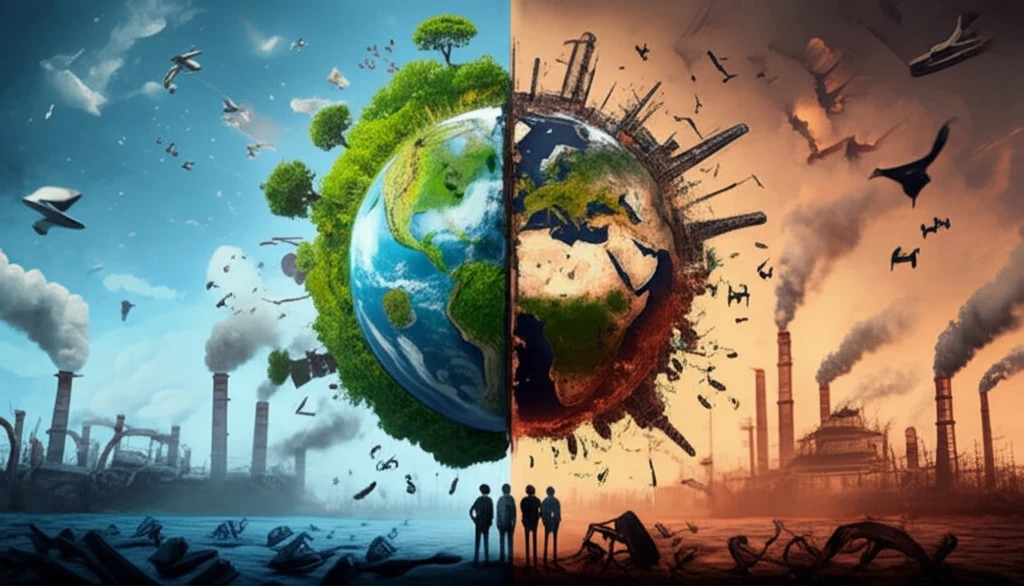
Decoding the Growth Dilemma: Are Experts and the Public on Different Pages?
"A Deep Dive into Conflicting Opinions on Economic Growth vs. Environmental Sustainability"
The relationship between economic growth and environmental well-being is one of the most hotly debated topics of our time. On one side, many scientists warn that endless growth is simply unsustainable, citing issues like climate change and resource depletion. On the other, many policymakers and members of the public believe that continued growth is essential for improving living standards and funding vital public services.
This divide isn't always clear-cut. Some argue for 'green growth,' suggesting that technological advancements and policy changes can allow us to expand our economies without harming the environment. Others promote 'degrowth,' advocating for a fundamental shift away from prioritizing GDP and towards more sustainable and equitable ways of life. Still others take a neutral stance, emphasizing that prioritizing sustainability and well-being is more important than focusing on economic expansion.
To understand this complex landscape, researchers have begun to investigate the different perspectives held by various groups within society. A key question is whether experts – the scientists and academics who study these issues – see eye-to-eye with the general public. Are there significant differences in how these groups perceive the trade-offs between economic growth and environmental sustainability? And if so, what might explain those differences?
Unpacking the Opinion Clusters: Green Growth, Agrowth, and Degrowth

To address these questions, a recent study brought together data from two surveys: one of the general public in Spain, and another of researchers from various academic backgrounds. Using a statistical technique called latent class analysis, the researchers identified three distinct opinion clusters in both groups:
- Green Growth: This group believes that continued economic growth is essential for improving life satisfaction and funding environmental protection. They tend to be optimistic about technology's ability to solve environmental problems.
- Agrowth: This cluster takes a more neutral stance, suggesting that economic growth should not be a primary policy objective. Instead, they prioritize well-being and environmental sustainability.
- Degrowth: This group is the most skeptical of economic growth, arguing that it is inherently harmful to the environment. They advocate for a reduction in production and consumption to achieve a more sustainable and equitable society.
Bridging the Divide: Implications for Policy and Communication
The findings of this study have important implications for policymakers and anyone interested in fostering a more sustainable future. Understanding the different perspectives held by experts and the public is crucial for designing effective policies and communicating about the challenges and opportunities of a post-growth economy. By acknowledging the nuances of public and scientific opinion, we can move towards a more inclusive and informed conversation about how to create a prosperous and sustainable future for all.
